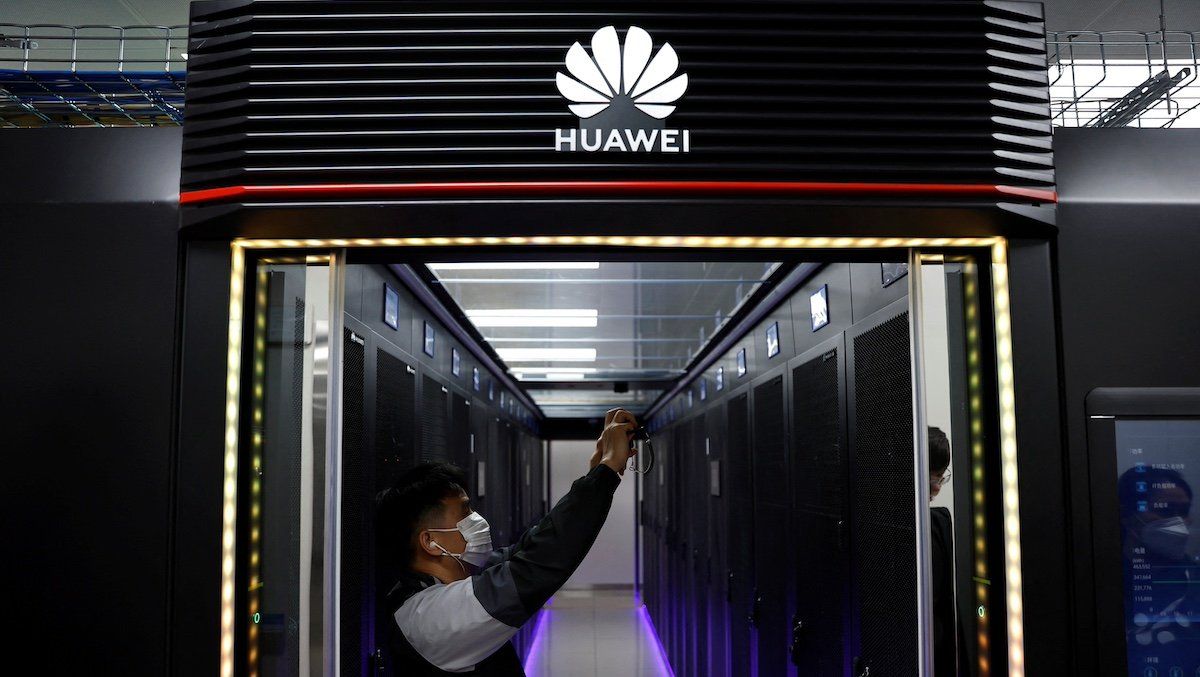A reporter films at a data centre supported by Huawei, at Hongliulin Coal Mine during a Huawei-organised media tour, in Shenmu of Yulin city, Shaanxi province, China April 25, 2023.
REUTERS/Tingshu Wang
Not only are Nvidia’s high-end chips getting through to the Chinese market, despite stringent export controls levied by the Biden administration, but they’re actually cheaper to access in China than in the US.
According to a new Financial Times report, Chinese data centers offering Nvidia’s AI chips charge just $6 an hour to use a server with eight Nvidia A100 processors. That same setup in the US costs about $10 an hour.
Nvidia’s H100 and A100 models are industry-standard for training and running large language models. But the Biden administration has restricted the sale of those chips and others, along with semiconductor manufacturing equipment, so that Chinese industry cannot take advantage of made-in-America technology.
It’s unclear how the chips are getting into China, but tech companies and resellers said that chips and data center inventories are openly advertised on Chinese social media and e-commerce sites — a sign that there are still gaping holes in the Biden administration’s attempts to wall off China. The Commerce Department, which oversees export controls, can’t remove what’s already gotten through, but it’ll try to keep plugging holes with future measures.